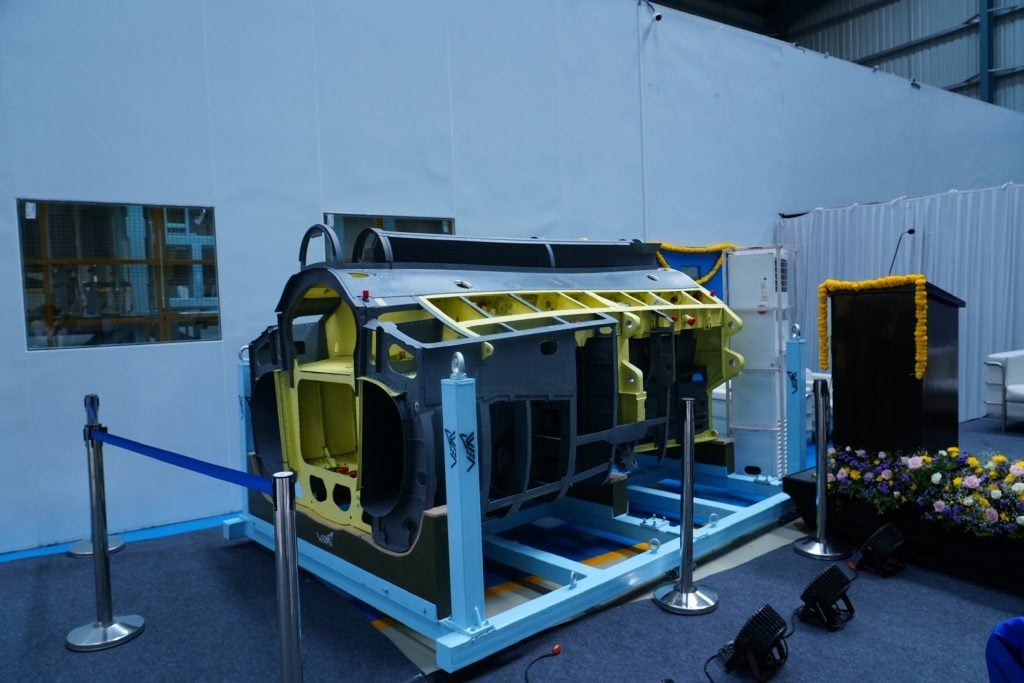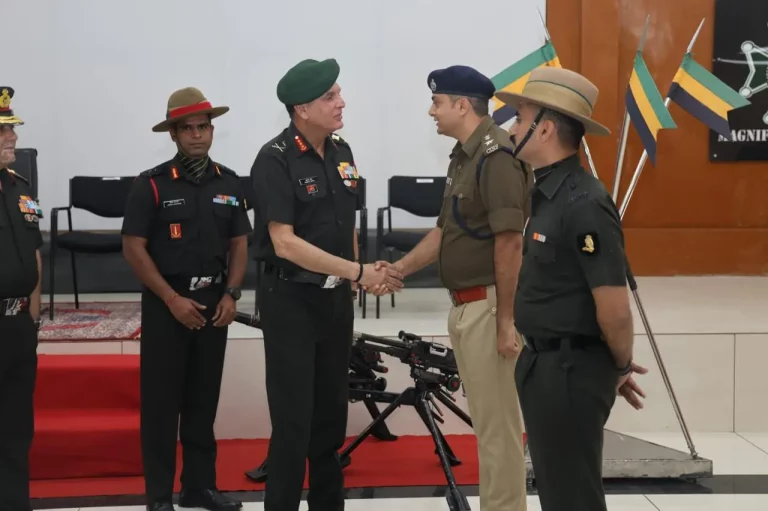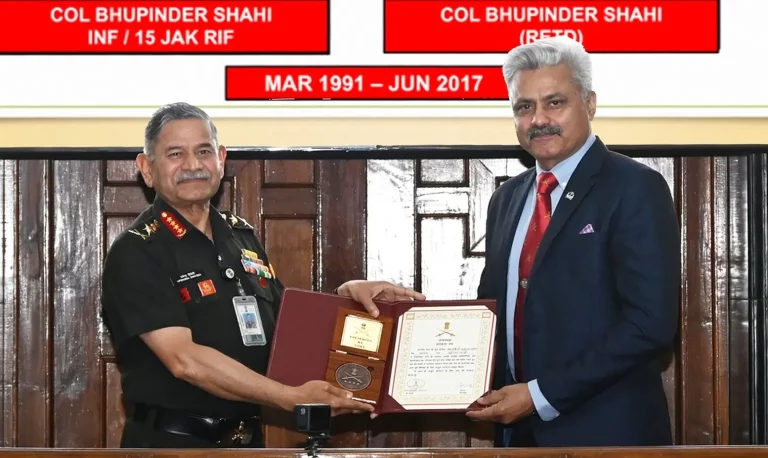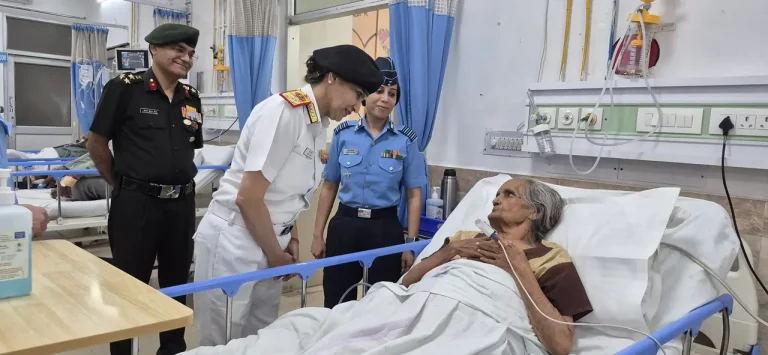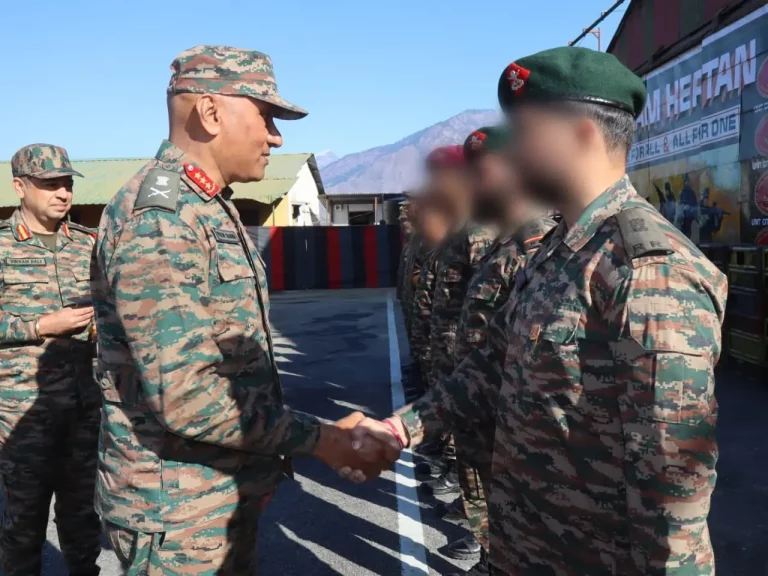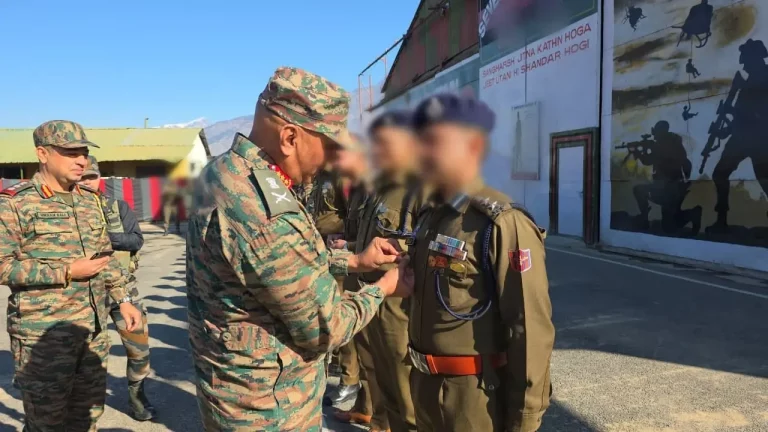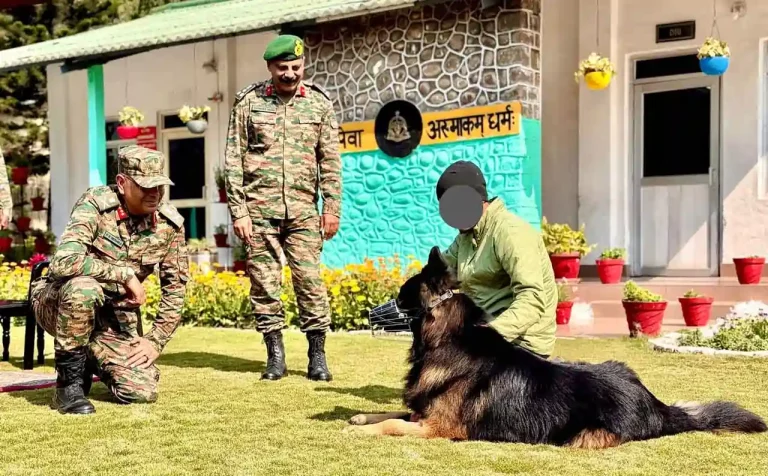In a significant development for India’s indigenous defense manufacturing sector, VEM Technologies has delivered the first center fuselage assembly for the Light Combat Aircraft (LCA) Tejas Mk1A to Hindustan Aeronautics Limited (HAL). The ceremony, which took place at VEM’s Hyderabad facility, was attended by high-ranking defense officials, including Secretary (Defence Production) Sanjeev Kumar and HAL Chairman and Managing Director Dr. D. K. Sunil.
This achievement marks the first occasion where a major sub-assembly of the Tejas fighter jet has been fabricated by a private Indian defense company, underscoring the growing involvement of the private sector in India’s defense landscape. The center fuselage consists of a semi-monocoque structure made from a combination of metallic and carbon fiber composite materials, and encompasses 1,595 components. Each component underwent stringent quality checks conducted by HAL during the production phase.
The LCA Tejas Mk1A represents an advanced version of India’s indigenous fighter aircraft, featuring significant upgrades such as an Active Electronically Scanned Array (AESA) radar, enhanced avionics, and improved combat capabilities. This aircraft is vital for the Indian Air Force’s modernization efforts. The collaboration with private firms like VEM Technologies is seen as an essential move to diminish reliance on foreign defense suppliers, particularly in light of ongoing global supply chain challenges.
VEM Technologies boasts a workforce of over 900 skilled professionals engaged in research, design, and integration of cutting-edge aerospace and defense systems. In addition to its role in the Tejas program, the company is actively involved in the development of India’s future fighter initiative—the Advanced Medium Combat Aircraft (AMCA)—with prototypes expected to be unveiled by 2026–2027.
This milestone aligns with India’s long-term objective to bolster the indigenous content within its defense platforms. Currently, the Tejas Mk1A incorporates 62% indigenous components, with the Tejas Mk2 aiming to enhance that figure to 70%.
However, challenges remain. The Tejas fleet still relies on the General Electric F404 engine, imported from the United States, and the Kaveri engine project, which has been overseen by the Gas Turbine Research Establishment (GTRE) since 1986, is still pursuing full operational viability. Despite these hurdles, government policy initiatives target 80% indigenization in future aircraft programs.
The successful handover of the center fuselage assembly signifies a deepening collaboration between India’s public and private sectors in the aerospace and defense domain, representing a crucial step toward achieving the nation’s vision of strategic self-reliance.
